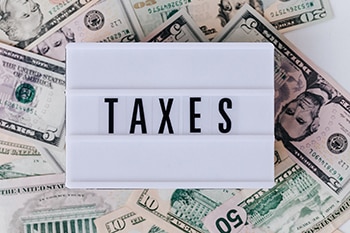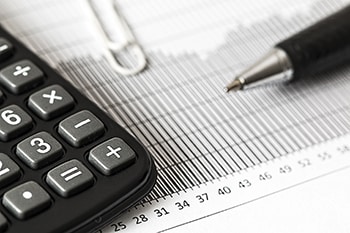Doordash is a popular food delivery service that many people use to get their meals delivered right to their door. But do you have to pay taxes on doordash? This is a question that many people have, and the answer is not always clear. In this blog post, we will explore the tax implications of using doordash and help you understand what you need to do to pay your taxes correctly. Thanks for reading!
To Answer The Question
If you’re an independent contractor for DoorDash, you are responsible for paying taxes on your earnings. When you file your taxes, you will first calculate your total income from all sources. Next, you will subtract any deductions and credits that you are eligible for.
The resulting number is your taxable income. Finally, you will multiply that by the appropriate tax rate to calculate your tax liability.
There are a couple of different ways that you can reduce your tax liability. Deductions lower your taxable income, while credits lower the amount of tax you owe dollar-for-dollar.
Tax Advice
When you go to fill out your tax forms, you will need to include your DoorDash earnings. The IRS requires all taxpayers to report their income, regardless of the source.
If you have any questions about whether or not you should be paying taxes on your DoorDash earnings, we recommend speaking with a tax professional. They will be able to help you determine your tax liability while helping you fill out your tax forms.
When you want to file taxes, the first thing you should do is calculate what part of your income is taxable. This is the total amount of money you made during the year, minus any deductions or credits you are eligible for.
If you are self-employed, you will need to file a Schedule C form with your taxes. This is where you will report your business income and expenses. DoorDash earnings will fall under the category of business income, so be sure to include them when calculating your total.
Paying taxes on your Doordash earnings may seem like a hassle, but it is important to do. By reporting your income and paying your taxes, you are helping to support the infrastructure and services that keep our country running.
Below we will explain each tax in detail.
Self Employment Tax
Self Employment Tax is only imposed on self-employed people. This includes people who work as independent contractors, freelancers, or do odd jobs. If you earn income from DoorDash, then you will most likely be subject to self-employment tax. The amount of tax you owe will depend on how much money you made from DoorDash and your tax bracket.
Income Tax
The second type of tax you may owe is income tax. This tax is imposed on all income forms, including DoorDash earnings. The amount you owe will depend on your total income, your filing status, and your tax bracket.
Bottom line: If you earn income from DoorDash, you will most likely owe both self-employment tax and income tax. The amount of tax you owe will depend on your total earnings and your tax bracket.
Add your Independent Contractor profits to other income to determine your income taxes
DoorDash income affects taxation differently from the income of employees. You need to pay self-employment tax. This represents 15.3% of your earnings. Income taxes are completely different. Your earnings are combined with other income including W2 wages, interest, investments, retirement, and other income.
So you can decide whether you’ll file an individual or joint return. You get deductions or adjustments in your taxes and other expenses. When the whole thing is done then your entire income minus the adjusted earnings is your tax deductible. Calculate your income tax bill which varies by your total taxable income.
Does Doordash Tax Your Income
You may be wondering, is Doordash pay taxed? The answer to that is, no Doordash will not take taxes out of your pay but unfortunately, yes. When you receive your pay from Doordash, you will owe taxes according to your tax bracket. However, there are some ways to minimize the amount of taxes you’ll have to pay on your earnings.
Here are a few tips:
– Make sure to track all of your expenses related to Doordash, including gas, car maintenance, cell phone purchases and monthly bills, car insurance, and more. You can deduct these expenses from your taxes, which will lower the amount of taxes you owe.
– If you’re a student or low-income earner, you may be eligible for certain tax breaks that can further reduce the amount of taxes you owe.
– There are also a few tax-advantaged retirement accounts that you can use to invest your Doordash earnings. This can help reduce your taxes in the long run.
Here are some of the different types of taxes you’ll need to pay as a Doordash driver:
State Income Taxes
State Income Taxes are the third type of tax you may owe. This tax is imposed by states on all forms of income, including doordash earnings. The amount of state income tax you owe will depend on your total income, your filing status, and the state in which you live. In states such as Florida, there is no state income tax compared to California which has relatively high state income taxes.
Medicare Taxes
The fourth type of tax you may owe is Medicare taxes. This tax is imposed on all forms of income and is used to fund the Medicare program. The amount of Medicare tax you owe will depend on your total income and your filing status.
Federal Income Taxes
The final type of tax you may owe as a doordash driver is federal income taxes. Federal income taxes are imposed on all forms of income, including doordash earnings. The amount of federal income tax you owe will depend on your total income, your filing status, and the number of dependents you have.
You can use the IRS withholding calculator to determine how much federal income tax you should have withheld from your doordash earnings.
Quarterly Tax Payments
You can make quarterly estimated tax payments directly to the IRS. If you do this, you could avoid getting a surprise tax bill and possibly avoid paying penalties. The IRS doesn’t want you to end up with a huge bill you can’t pay.
Deductions and Credits
Deductions and credits are two ways to lower your tax bill. Some common deductions include student loan interest, charitable donations, and medical expenses. Common credits include the Earned Income Credit and the Child Tax Credit.
Tax Deductions
Tax deductions are expenses that you can subtract from your total income to lower any taxable income. Common deductions include:
– pay
– taxes
– tips
Claiming car expenses can slash your taxable profits
You may travel far and wide at the same time. Because you include damage and depreciation, as well as increased maintenance costs linked with the greater miles traveled, the cost is greater.
Doordash automobile expenses can be written off, which is a good thing since driving is so expensive. The IRS provides two different methods for reimbursing vehicle expenditures: The business driver’s automobile must be adequately insured and registered. The corporation driver’s deductible amount is 50% for this type of shift, as calculated per-mile basis.
Business Expenses
Business Expenses as a doordash driver include a lot of things because you are an independent contractor. As an independent contractor, you are not an employee of the company. This means doordash will not take taxes out of your paychecks, and you will be responsible for paying taxes on your doordash earnings at the end of the year.
You must file a Schedule C with your tax return to report any business income or expenses. On this form, you will report your DoorDash earnings and any business expenses you incurred while DoorDashing.
When tax season rolls around you should make sure this has already been taken care of either by you or a tax professional.
Business expenses can include the cost of gas, car repairs, or any other costs associated with driving for doordash. These expenses are your doordash tax deductions.
Door Dash and Taxes
If your tax bill is zero withheld, then your tax bill will be huge. If the payment cannot be made, you are ineligible for restitution. Another option would be to pay monthly estimated payments directly from the IRS.
It’s always better to be safe than sorry when it comes to your taxes. Filing and paying your taxes on time is the best way to avoid any penalties or interest fees.
If you have any questions about whether or not you should be paying taxes on DoorDash, it’s best to consult with a tax professional. They will be able to help you determine what you need to do to stay compliant with the law.
Thanks for reading! I hope this has helped clear things up for you.
Wondering if there are any other exciting tax topics you’d like me to cover? Let me know in the comments below!



Leave a Reply